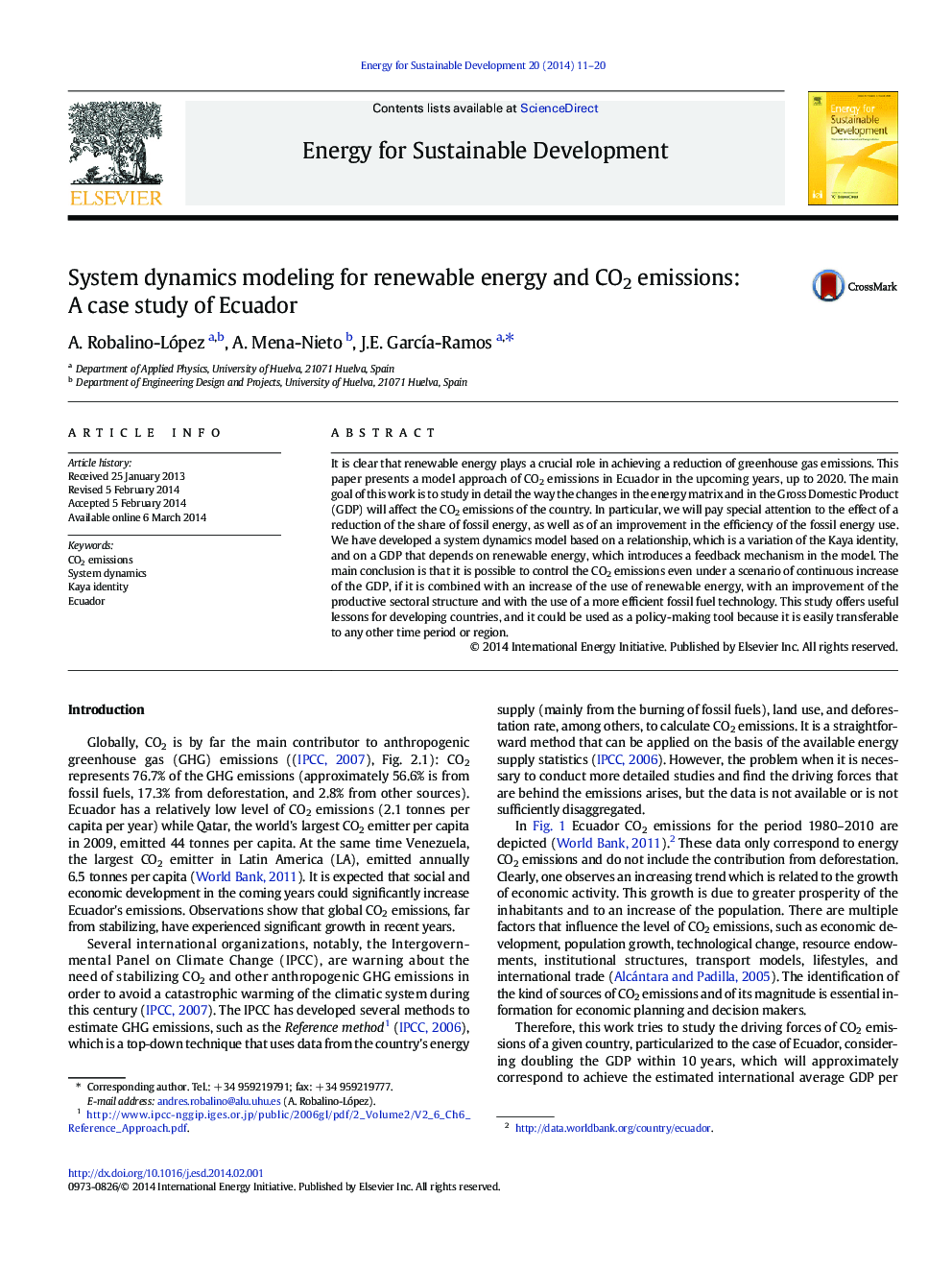| کد مقاله | کد نشریه | سال انتشار | مقاله انگلیسی | نسخه تمام متن |
|---|---|---|---|---|
| 1046842 | 1484410 | 2014 | 10 صفحه PDF | دانلود رایگان |
• We model the CO2 emissions in Ecuador for the next decade under several scenarios.
• We use a variation of the Kaya identity that includes a feedback mechanism.
• We disaggregate the CO2 calculation in types of fuels and industrial sectors.
• We present different strategies/goals to reduce CO2 emissions.
It is clear that renewable energy plays a crucial role in achieving a reduction of greenhouse gas emissions. This paper presents a model approach of CO2 emissions in Ecuador in the upcoming years, up to 2020. The main goal of this work is to study in detail the way the changes in the energy matrix and in the Gross Domestic Product (GDP) will affect the CO2 emissions of the country. In particular, we will pay special attention to the effect of a reduction of the share of fossil energy, as well as of an improvement in the efficiency of the fossil energy use. We have developed a system dynamics model based on a relationship, which is a variation of the Kaya identity, and on a GDP that depends on renewable energy, which introduces a feedback mechanism in the model. The main conclusion is that it is possible to control the CO2 emissions even under a scenario of continuous increase of the GDP, if it is combined with an increase of the use of renewable energy, with an improvement of the productive sectoral structure and with the use of a more efficient fossil fuel technology. This study offers useful lessons for developing countries, and it could be used as a policy-making tool because it is easily transferable to any other time period or region.
Journal: Energy for Sustainable Development - Volume 20, June 2014, Pages 11–20
